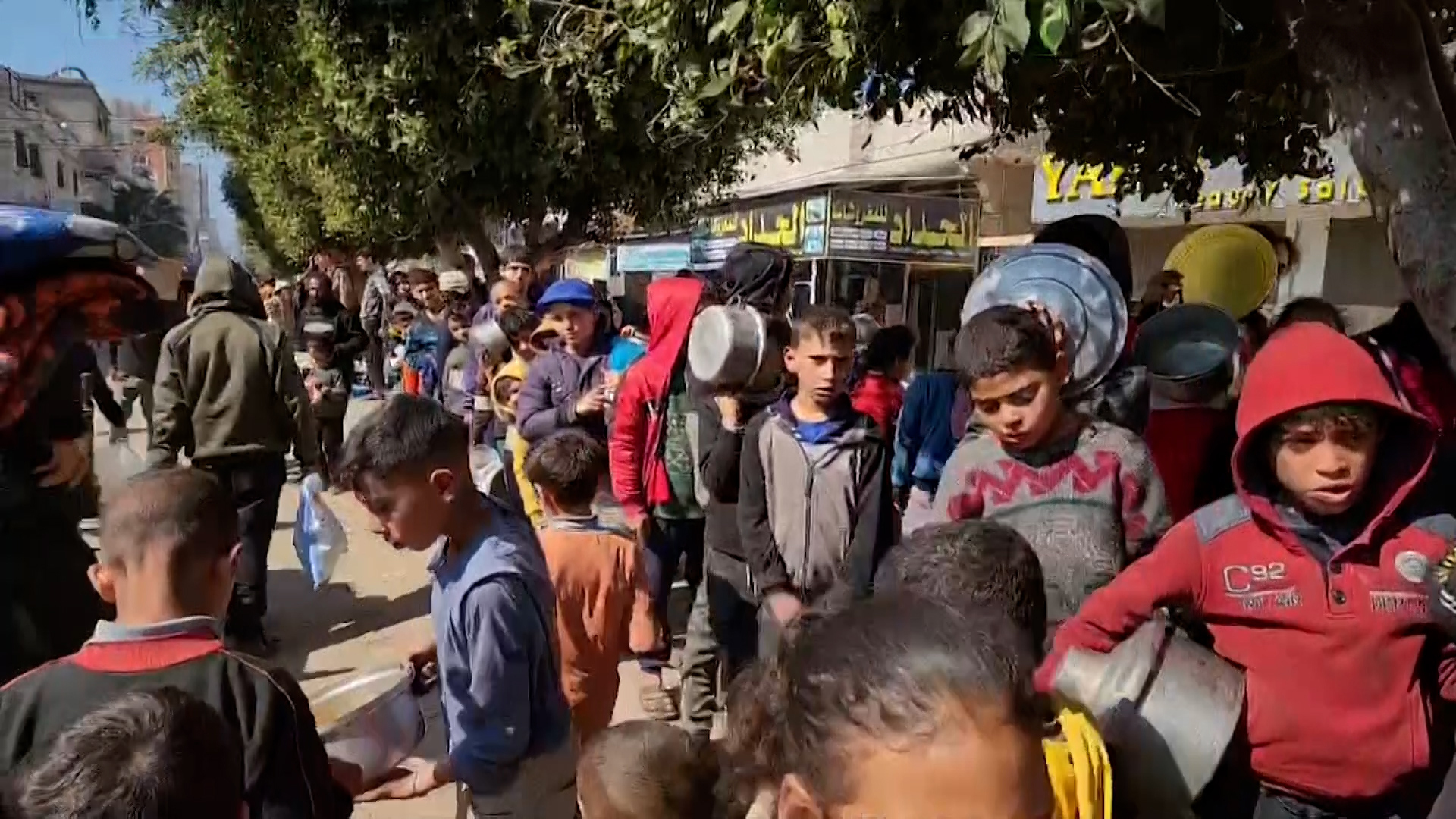play videoplay video
Video duration 02 minutes 37 seconds 02:37
The office of Israeli Prime Minister Benjamin Netanyahu announced that the army had presented a plan to “evacuate” civilians from “combat zones” in Gaza, while Israel had threatened - yesterday, Sunday - to invade the crowded Rafah (south of the Gaza Strip), even if a truce agreement was reached with the Islamic Resistance Movement (Hamas). ).
In a brief statement, Netanyahu's office said that the army "presented to the war council a plan to evacuate residents from combat zones in the Gaza Strip, as well as a plan for future operations," without going into details.
This comes at a time when Netanyahu told the American CBS channel yesterday that reaching a truce agreement would only lead to “delaying” the attack on the city of Rafah, where nearly 1.5 million civilians are gathered on the closed border with Egypt, according to United Nations figures.
The Israeli Prime Minister stated, “If we reach an agreement, (the operation) will be delayed to some extent, but it will be completed,” adding, “If there is no agreement, we will do it anyway. It must be completed, because complete victory is our goal, and complete victory is within reach.” “Not after months, but after weeks, once we start the process.”
Netanyahu announced on Saturday that he would gather the Council of Ministers at the beginning of the week “to approve operational plans in Rafah, including the evacuation of the civilian population” from Hamas’ “last stronghold,” he said.
Concern is growing about the fate of Rafah, where about 1.5 million people are crowded, most of them displaced, due to the ground operation that the occupation army is preparing for, which does not stop bombing the city, while the battles also continue in the center and north of the Strip.
The entry of aid into Gaza is subject to Israeli approval, and scarce humanitarian support reaches the besieged Strip, mainly through the Rafah crossing with Egypt, but transporting it to the north is difficult due to the destruction and battles.
The Commissioner-General of the United Nations Relief and Works Agency for Palestine Refugees (UNRWA), Philippe Lazzarini, said yesterday that it is still possible to "avoid" famine in Gaza if Israel allows humanitarian agencies to bring in more aid, adding that the situation in Gaza is a "man-made disaster."
The food shortage has forced hundreds of people to leave the north of the Strip, where there are 300,000 people, towards the centre, according to what an Agence France-Presse correspondent reported yesterday.
Source: French

